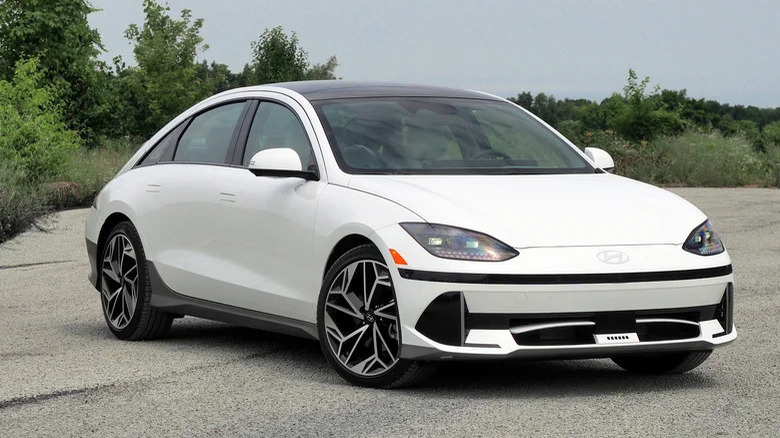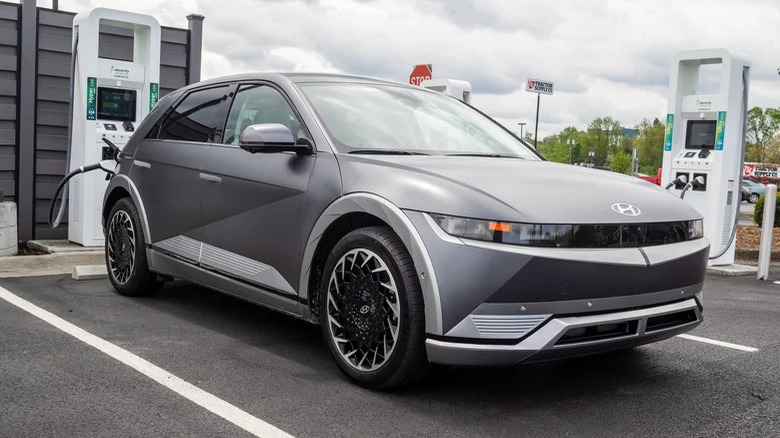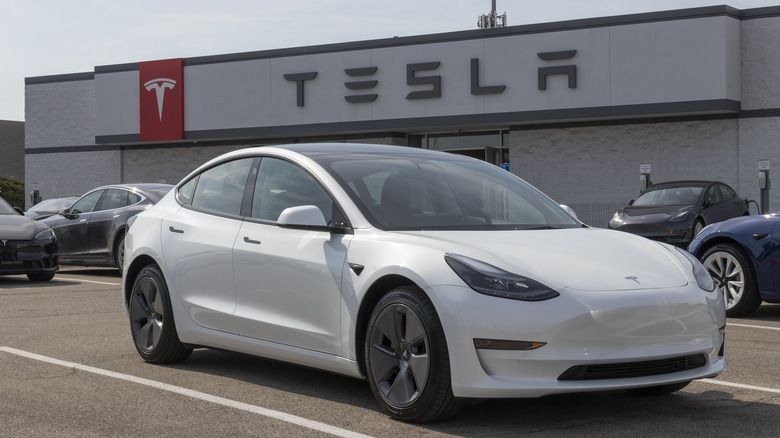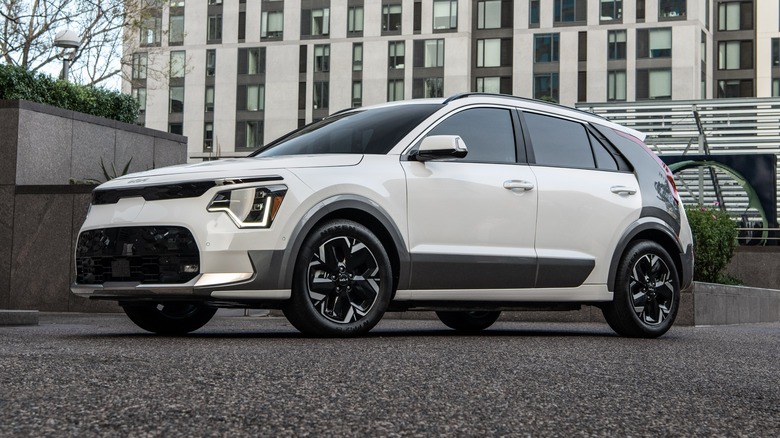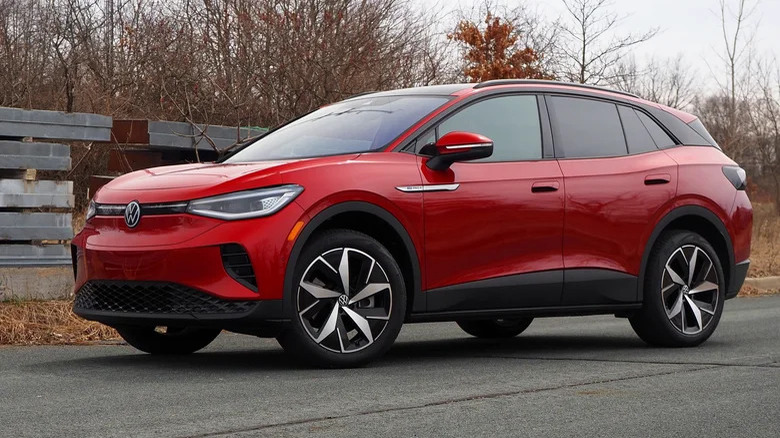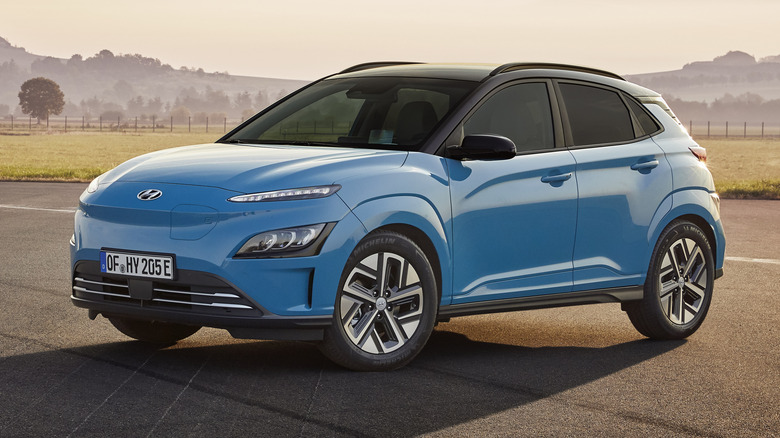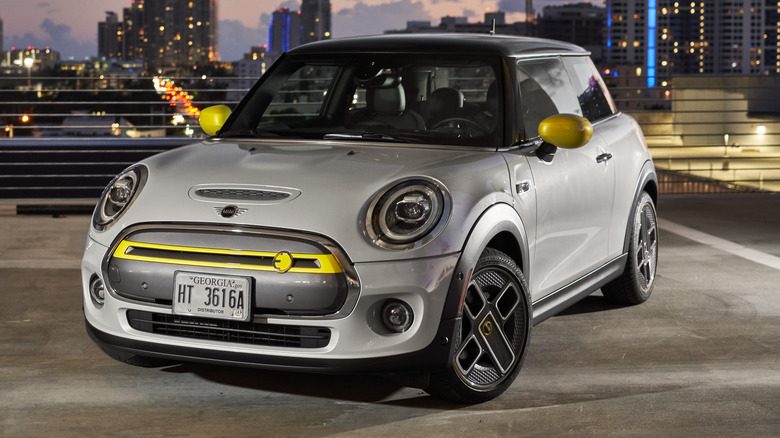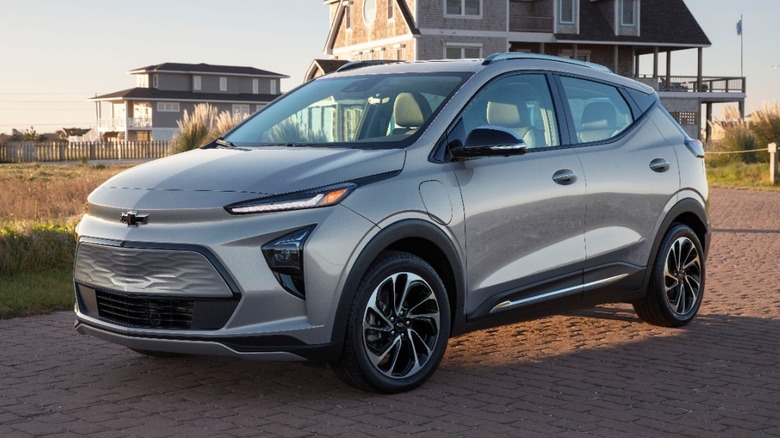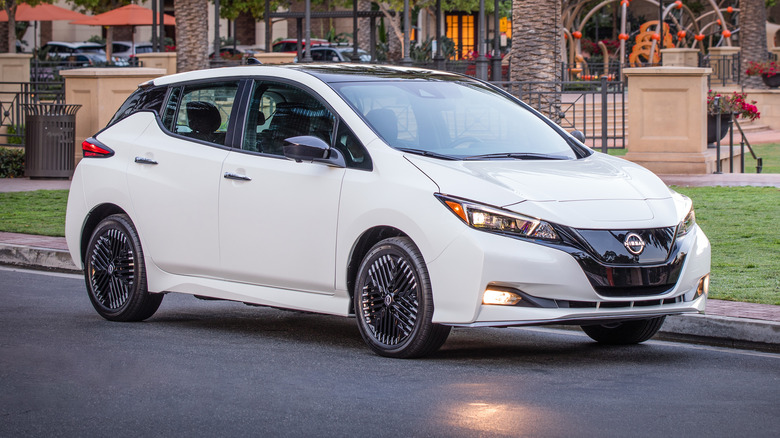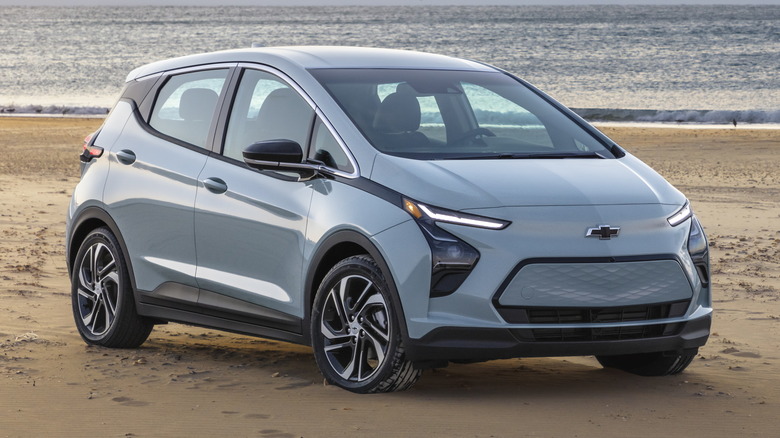The 10 Most Affordable Electric Cars, Ranked
The last few years have seen a wave of new electric cars hit the market, and with such increased competition, manufacturers have been forced to start getting more competitive on pricing. It wasn't too long ago that the term "cheap EV" used to mean sacrificing range, quality, or both. But now, many of the most affordable EVs on the market sport ranges well over 200 miles and build quality that matches that of the best gas-powered cars in the same price bracket.
This list counts down the cheapest EVs on sale for the 2023 model year, ranking them by starting MSRP. The $7,500 tax rebate can bring those prices down even further, making electric cars genuinely affordable to most new car buyers. There are fewer compromises to be made than ever by switching to electric and an increasingly long list of benefits. That might be enough to persuade some buyers who have been on the fence about buying an EV up until now.
2023 Hyundai Ioniq 6 - $41,600
The Hyundai Ioniq 6 launched for the 2023 model year, and it's one of the few true rivals to the Tesla Model 3. In the cheapest SE Standard Range trim, it costs $41,600, while at the other end of the spectrum, the $52,600 Limited trim tops out the range. Thanks to the car's 800V architecture, charging times are among the fastest in the segment — if you have access to a Level 3 fast charger, charging up to 80% takes as little as 18 minutes. Level 2 chargers, which can be installed at home, should take between 5.5 and 7 hours to reach the same level.
The base-spec Ioniq 6's official range is estimated at 240 miles, and SlashGear found those estimates to be generally accurate. Styling is always subjective, but one thing that can't be argued is that the car's flowing, retro-futuristic design certainly won't get lost in the crowd. Hyundai's recent EVs have gone all-in on the unique design front, and that's arguably a good thing no matter what you think of the Ioniq 6 itself. After all, a common complaint about new cars is that their shared underpinnings and aero-focused designs mean they all look the same, and no one can level that argument against Hyundai's current all-electric lineup.
2023 Hyundai Ioniq 5 - $41,450
Anyone who's not sold on the Ioniq 6 could look to another product in the South Korean automaker's stable, the Ioniq 5. It's been out for longer than its pricier sibling, but its design is no less distinctive, with a retro-modern hatchback look that's sure to polarize. The range on the base-spec trim is estimated at a slightly less impressive 220 miles, with higher-spec RWD trims getting an estimated 303 miles. Anyone who frequently travels longer distances might find upgrading to one of the higher trims is a worthwhile investment, but as an urban runabout, the $41,450 base trim should do just fine.
The car's interior is sleek, airy, and more premium feeling than its price suggests, especially with the panoramic glass roof. There's also plenty of standard infotainment and safety tech, but curiously, no option for wireless Apple CarPlay and Android Auto. That aside, SlashGear found little to dislike about the car, crowning it as one of the most well-rounded affordable EVs on the market.
2023 Tesla Model 3 - $40,240
Despite intense competition from other manufacturers, Tesla remains the benchmark in the EV market, and the Model 3 is the brand's most affordable option. Tesla's lineup has been subject to multiple pricing changes in recent months, although at present, the Model 3 is available for $40,240, making it the eighth cheapest EV on sale today. It's hard to argue with the benefits offered by buying a Tesla — most notably, unfettered access to the brand's industry-leading Supercharger network — but there's one reason it might be better to hold off buying one for now.
An alleged leak in March 2023 gave a glimpse at the next generation of the Model 3, which is internally known as "Project Highland." It's set to enter production in the second half of 2023, sporting several tweaks and improvements to both the exterior and interior design. However, it's not all good news — along with those changes, several sensors are reportedly set to be removed in a bid to cut costs. There's no word on pricing for the new generation for now, but expect to see more details emerge later in the year as production begins.
2023 Kia Niro EV - $39,550
Kia's cheapest electric vehicle for 2023 is the Niro EV, which is based on the common architecture that also underpins rival offerings from Hyundai and Genesis. Two trims are available, each of which features the same 253-mile range and 201-horsepower output. In its most affordable form, the Niro EV starts at $39,550, and for that, buyers get a car that's both thoughtfully designed and well-equipped.
It doesn't boast the standout design or quite such a futuristic feel as its Hyundai-badged platform siblings, but the Niro EV still delivers on all the necessities. It's practical, affordable, and reasonably priced, not to mention its range is one of the longest in this price bracket. DC fast charging is available with both trims, with charging up to 80% taking around 45 minutes. That's not quite as impressive as the Ioniq 6, which takes less than half that time to reach the same level of charge, but it's still broadly competitive with its rivals.
2023 Volkswagen ID.4 - $38,995
The 2023 Volkswagen ID.4 is one of the most "normal" EVs out there — that is, it's competent, practical, and decent to drive, without being standout in any one aspect. That's no bad thing, either. Its familiarity should make it a great candidate for first-time EV buyers, and its price puts it firmly within the reach of the mass market too. The car starts at $38,995 for 2023.
The ID.4 isn't without its flaws, however. In its cheapest configuration, the ID.4 is only rated for 209 miles of range. That figure does increase to 275 miles further up the lineup, but it's disappointing to see that the base spec trim can't match up to the best in the segment. Its saving grace is that VW bundles in three years of charging through the Electrify America network, with unlimited sessions up to 30 minutes long. That should be enough to get the battery up to around 80% in ideal conditions, meaning that, in theory at least, it's possible to pay nothing at all for power for the first three years of ownership.
2023 Hyundai Kona Electric - $33,550
Hyundai's cheapest EV is the Kona Electric, with a starting price of $33,550. It might sound like a bargain on paper, with an EPA-estimated 258 miles of range and 201 horsepower on tap, but it's perhaps not the wisest choice for anyone looking for hassle-free EV ownership. That's because the Kona Electric has been rated as one of the least reliable electric cars on the market, with powertrain and battery issues being commonly reported, as well as other electrical gremlins involving the AC unit.
Hyundai does cover any potential defects by offering a 10-year or 100,000-mile warranty for the powertrain and battery, so it's not like any issues will result in costly bills for owners. However, it's still going to be a big inconvenience. Hyundai's Ioniq range doesn't suffer from the same problems, so if budget allows, it might be best to opt for a slightly pricier model in the brand's range until the Kona Electric's issues are resolved.
2023 Mini Cooper SE Hardtop - $30,900
If range is a priority when buying an EV, then the Mini Cooper SE Hardtop is also worth avoiding. With only 114 miles of range available on a full charge, the Mini is significantly less capable than most other EVs on the market today. It offers 181 horsepower, making it a relatively sprightly car to drive around town, even if it's far from fast. It's fairly quick to charge, with Mini claiming a 36-minute charging time to reach 80% on a 50kW charger.
At a starting price of $30,900, it's cheap too, and all the usual Mini interior design quirks are present and correct. Really, the only thing letting it down is its range, which is less than half of what cheaper rivals like the Chevy Bolt can offer. It's also worth noting that, like any EV, the car's batteries will inevitably degrade over time, and so in a few years' time, that 114-mile range will likely have been eroded to somewhere in the double-digit range. The Mini's charms and city car status make it a great EV in theory, but the current electric Mini is unlikely to sway buyers considering what else is on the market in 2023.
2023 Chevrolet Bolt EUV - $28,795
Despite having similar names and appearances, the Chevy Bolt EUV and the Bolt EV are in fact two separate models, with the former being the larger and slightly more expensive of the two. The Bolt EUV is the newer model, first launching in 2021 for the 2022 model year. Its low starting price means it inevitably draws comparisons to the Nissan Leaf, but when compared to its chief rival, the Chevy comes out favorably. The EUV is a crossover, making it the roomiest of the pair, and it's comparable in price, with a starting price of $28,795 for 2023.
Perhaps the biggest downside is that only 55kW fast charging is supported, which means the Bolt EUV is slower to charge than many other affordable EVs. However, its range is excellent for the price, with 247 miles available, nearly 100 miles more than a base Leaf. There's 200 horsepower on offer with the EUV, too, which is comparable with some EVs that cost over $10,000 more. That makes the Bolt EUV one of the best-value electric cars on the market, and it's made even better by the fact that 2023 models saw a price cut from 2022.
2023 Nissan Leaf - $28,040
The Nissan Leaf is one of the oldest EV nameplates still in production, but its low price means it's still a strong competitor even with an increasingly packed field of rivals. It starts at $28,040 for 2023, or alternatively, it's a great choice if you're looking to lease an EV rather than buy outright. The cheapest trim only achieves an EPA-estimated 149 miles between charges, but the $36,040 Leaf SV Plus is rated for 212 miles. It's the latter that's therefore going to be the better option for most drivers, especially since the SV Plus is still cheaper than many EV rivals.
The base spec car produces 147 horsepower, making it one of the slower modern EVs to drive, while the SV Plus makes 214 horsepower. It's worth noting that, despite being one of the most affordable EVs upfront, the Leaf does depreciate significantly faster than many other electric vehicles at this end of the market. So, although it might seem like a bargain at first, buyers are likely to get less of their money back if they resell a few years down the line.
2023 Chevrolet Bolt EV - $27,495
The smaller of the Bolt twins, the Bolt EV, is even cheaper, with a starting price of just $27,495. However, it's not to last: Chevy recently confirmed that the current-generation Bolt will be axed after the 2023 model year, and will be effectively replaced by the Equinox EV for 2024. Exact pricing hasn't been confirmed yet, but Chevy says the base Equinox will be "around $30,000," so a little more than the Bolt EV.
The current iteration of the Bolt EUV is also on the chopping block, with the reasoning being that it uses an older GM EV platform that's become obsolete as the new Ultium platform has been introduced. There's still time to buy a Bolt EV for now, as the Equinox isn't due to go on sale until the fall. It's also been confirmed that a next-generation Chevy Bolt will be launched in the future, presumably on the Ultium platform, although details remain scant for now.

